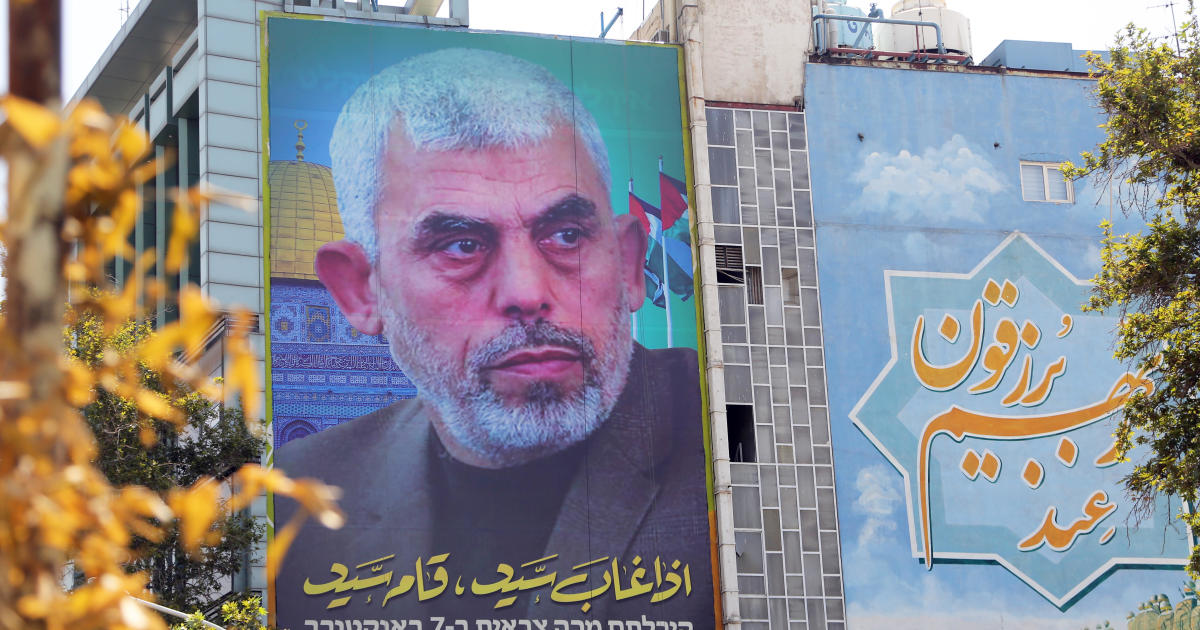Yahya Sinwar’s death marks a significant turning point in the ongoing Israeli-Hamas conflict. His assassination, confirmed by Israeli authorities and acknowledged by the U.S., has prompted varied reactions and raised crucial questions about the future of the conflict and the fate of the remaining hostages. The international community is closely watching how this development unfolds, especially considering its potential impact on peace negotiations and the ongoing humanitarian crisis in Gaza.
The Assassination of Yahya Sinwar: A Key Turning Point
Israeli Operation and Confirmation
The Israeli Defense Forces (IDF) announced the killing of Yahya Sinwar, Hamas’ top leader, during a military operation in southern Gaza. Details of the operation remain somewhat unclear, with conflicting accounts emerging from various sources. While the IDF stated that Sinwar was killed during an engagement with troops after being identified among fleeing terrorists, other reports suggest he was targeted in a building after being wounded in an initial confrontation. Drone footage reportedly played a crucial role in confirming his identity before he was ultimately eliminated. The Israeli government, notably Prime Minister Benjamin Netanyahu and Foreign Minister Israel Katz, hailed the operation as a significant achievement, emphasizing the impact on Hamas’ control over Gaza. The timing of the announcement, amidst the ongoing war, suggests a calculated attempt to exert both military and psychological pressure. The fact that confirmation came after DNA testing highlights a degree of caution and procedural thoroughness on the part of Israeli officials, keen to avoid misinformation. The meticulous recounting of the operation underscores the importance Israel attaches to its success.
International Reactions and Implications
The international response to Sinwar’s death has been diverse. The Biden administration, while acknowledging the event as positive for Israel and the world, stressed the importance of using this opportunity for bringing home the hostages and working toward a cessation of hostilities. Secretary of State Antony Blinken condemned Sinwar’s role in the October 7th attacks and characterized his death as making the world a better place. The global reaction mirrors a general trend: most Western governments quietly express satisfaction about the removal of this key Hamas figure, yet emphasize the need for diplomatic solutions, hoping this event is a prelude to renewed negotiations. However, some analysts believe it could escalate the violence, leading to increased resistance from other Hamas members, whereas others contend this removal weakens Hamas considerably and may be used as leverage for negotiations. This diversity highlights the global complexities surrounding the Israel-Palestine conflict.
The Future of Hamas and the Gaza Conflict
Leadership Vacuum and Internal Dynamics
Sinwar’s assassination creates a considerable leadership vacuum within Hamas. The organization’s future trajectory remains uncertain as it deals with succession planning and its ongoing ability to govern. It’s likely to result in internal power struggles and changes in strategy, even possibly leading to more radical elements taking power within Hamas. This uncertainty adds another layer of complexity to the already fraught situation in Gaza, which is now reeling from repeated battles and loss of life. There has been concern that a replacement leader would take a harder line, making negotiations less feasible. This is not confirmed and time will tell if this prediction will come to fruition.
Implications for Hostage Negotiations
The Israeli government’s stance on this matter and future negotiations remain uncertain. Although some sources indicate that an opportunity may arise for peace talks by using this moment as leverage, this might also strengthen the hands of hard-line Israeli figures opposed to further concessions, making any resolution harder to achieve. A range of options is available for Israelis— from trying to leverage Sinwar’s death for improved cooperation and ultimately peace with the Palestinians, to continuing with a hardline approach. While removing the top leader can indeed benefit the negotiation effort, this advantage may fade with time and without a follow-up strategy, such as initiating dialogue quickly.
The Humanitarian Crisis in Gaza and Path Forward
Ongoing Suffering and Displacement
The humanitarian crisis in Gaza remains dire, with widespread destruction, displacement, and suffering following more than a year of conflict. The death of Sinwar does not diminish this critical need for aid, nor resolve underlying tensions fueling this catastrophic situation. In fact, while the international attention may shift towards the future political dynamics, and negotiation strategies, the urgent humanitarian response requires its continued focus, without ignoring other equally dire issues of the conflict. Aid organizations have warned of impending food shortages, sanitation issues and lack of access to medical treatment for thousands, despite some efforts by other countries to send humanitarian relief and aid.
Potential for Diplomatic Breakthrough or Escalation?
Sinwar’s death could potentially open up avenues for diplomatic engagement and a potential ceasefire, but the possibility of further escalation also remains a very real possibility. The ongoing violence raises a legitimate question of what kind of opportunity Sinwar’s death actually provides for conflict resolution. As stated before, several alternative scenarios might be at play: negotiations may yield positive outcomes, leading to lasting peace, but equally possibly, a harder stance might emerge from the group’s ranks. It depends critically on the policies adopted by various entities after this event and any actions following the assassination.
Take Away Points:
- The assassination of Yahya Sinwar represents a major shift in the Israeli-Hamas conflict.
- The international community’s response is varied, ranging from cautious optimism to concern about further escalation.
- Sinwar’s death creates a leadership vacuum within Hamas, raising questions about the group’s future trajectory.
- The humanitarian crisis in Gaza persists, irrespective of the political developments.
- The path forward remains uncertain, with potential for both diplomatic progress and renewed conflict.




